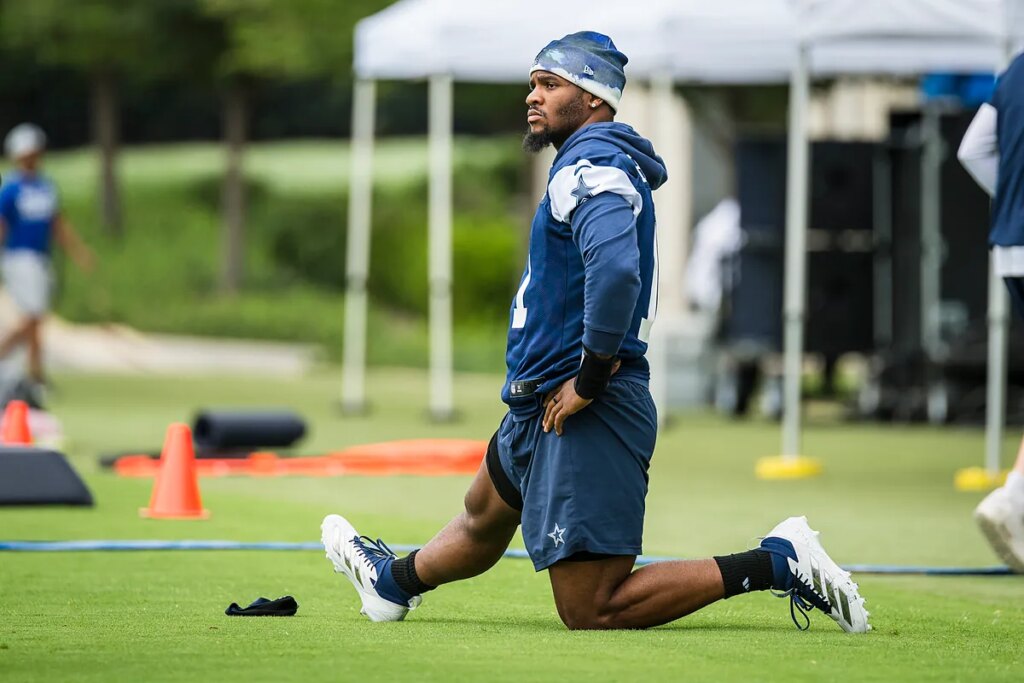Micah Parsons isn’t just another budding NFL star-he’s already elite. At just 26, Parsons boasts four Pro Bowl appearances, two All-Pro selections, and a Defensive Rookie of the Year award.
He’s produced at least 12 sacks in each of his first four seasons and emerged as the cornerstone of the Dallas Cowboys’ defense. So why is it proving so difficult to give him a deal that reflects it?
As the Cowboys open training camp, Parsons is present-but a cloud hangs over the franchise. The expected contract extension that should’ve been routine has become a slow-burning fiasco.
The numbers are out there: T.J. Watt and Myles Garrett have reset the market for pass rushers at $40-$41 million per year. Parsons wants to top it-and by all rights, he should. But instead of urgency, the Cowboys have delivered hesitation.
Who’s to blame for the contract stalemate?
At the center of this standoff is Cowboys owner Jerry Jones, whose contract negotiation style has become predictable-and costly. This isn’t his first drawn-out deal. He delayed extensions for Dak Prescott and CeeDee Lamb, only to pay more after weeks of drama. Now, he’s running the same script with Parsons, reportedly attempting to sidestep his agent and creating unnecessary tension.
Parsons hasn’t helped matters with public comments that suggest frustration.
“I’m going to get mine no matter what, and ownership is always going to make it drag out,” Parsons declared.
With an owner known for pride-driven decisions, those jabs likely haven’t made talks any easier. Still, it’s hard to blame a player of Parsons’ caliber for wanting what he’s worth.
Meanwhile, the presence of big-money deals for Lamb and Prescott indirectly raises expectations. They set a precedent: top stars in Dallas eventually get paid-just after a drawn-out process. That precedent empowers Parsons and his agent, David Mulugheta, to stay firm.
First-year head coach Brian Schottenheimer finds himself stuck in the middle. While not directly involved in negotiations, his ability to build momentum in his debut season depends heavily on his best defender being locked in-mentally and financially. He needs stability, not headlines.
Unlike other players who’ve held out, Parsons has attended all offseason activities, signaling commitment. But even professionalism has limits. If Dallas continues to stall, that focus could waver-and the locker room will feel it.
By not finalizing this deal sooner, the Cowboys risk more than bad optics. Each month that passes without an agreement only increases Parsons’ market value, especially as other stars around the league sign new deals. The front office may think it’s playing chess, but in reality, it’s giving away leverage.
This is no longer just about numbers. It’s about culture, consistency, and whether the Cowboys can stop tripping over their own brand of drama. Parsons deserves a deal that reflects his value. If the Cowboys continue letting pride dictate policy, they’ll only have themselves to blame for the chaos that follows.
Read the full article here

